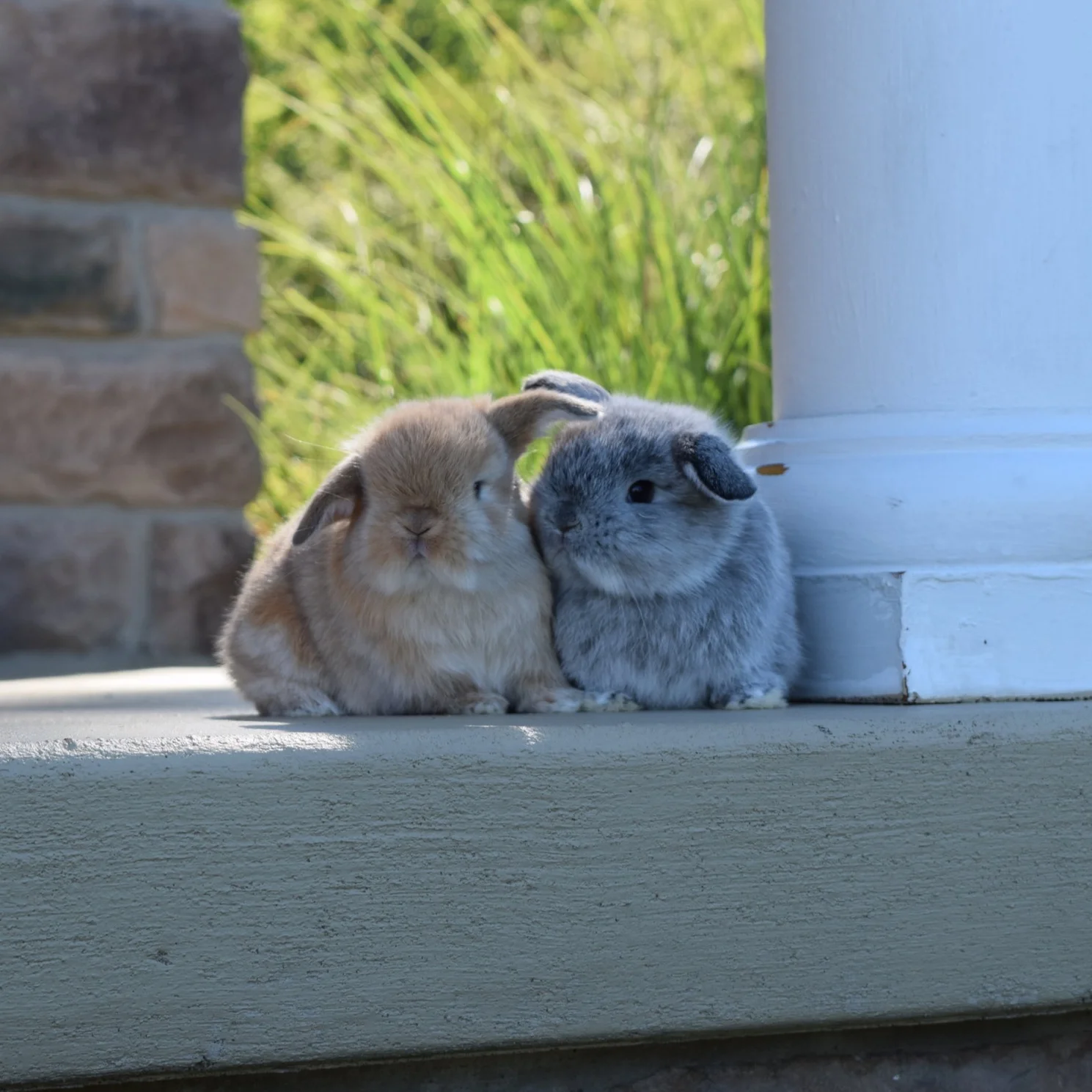The Importance of Personality
Owning a rabbitry and breeding gave me a front row seat to watching a LOT of bunnies grow and change. I will let you in on a secret - they are all different. Their personalities emerge shortly after birth and you can see it if you watch carefully. Even before they grow fur, you might see one that consistently drapes himself across his siblings - always the one on top of the pile. There might be one that always snuggle deep underneath, hiding behind brothers and sisters. There is usually one that's a fidgeter and is forever escaping out of the nestbox way earlier than advisable, stumbling around blindly looking for mom by scent. As they grow, their individual characteristics and habits become more obvious. As a breeder, I could quash that and just manage and handle the kits. They can feel that. Or, I can give them a little space, a little room to be themselves. Believe me, they can feel that too.
The longer I bred Hollands, the more I realized how important it was to try and match my bunnies with a home that matched their personality. If I put a sweet, introverted bunny in an extroverted home, there was a good chance that it would be intimidated and withdraw. The family would likely be disappointed and the bunny might be left alone and neglected. A lose - lose, right? What if I put an extremely extroverted bunny in a quiet home? That insuppressible joy that poured out of the bunny could be seen as annoying and exhausting and result in a lot of cage time and stern reprimands. The very intelligent bunny that perceives way more than you think it does can be viewed as picky and demanding. Put each of these bunnies in the correct environment and they will be accepted and loved, given the space to be themselves and thrive.
When I started taking the time and effort to match homes and bunnies, I lost customers. A lot of people viewed a bunny as a temporary pet and didn't appreciate the effort or what it required. However, the type of customer I was hoping for started coming out of the woodwork. I was able to match most, if not all of my bunnies with homes that were well suited for their needs and personality. A win-win.
If you are wondering, this is why getting a kit is often easier. While each bunny has it's own personality, kits are usually more flexible and "roll with the punches" in terms of change. Additionally, if they come from a great barn/home/rabbitry, they have lived their first two months surrounded by love. They can mold a little easier to accept the nuances of your home vs. their first home.
What if you get an adult bunny? Two thoughts. First, they have been shaped by their previous environment. Sometimes it takes a little while (3 mos - up to 12 mos for tough cases) for an adult bunny to come out of their shell, drop their guard and just be themselves with you. This can be true even if they were nurtured in their old home, and you are attempting to nurture them too. The change itself can take time because bunnies are creatures of habit. Second, love and a good match trump everything. If you get a good match, it might take no time at all. If you have love and patience, any bunny can be won over.


